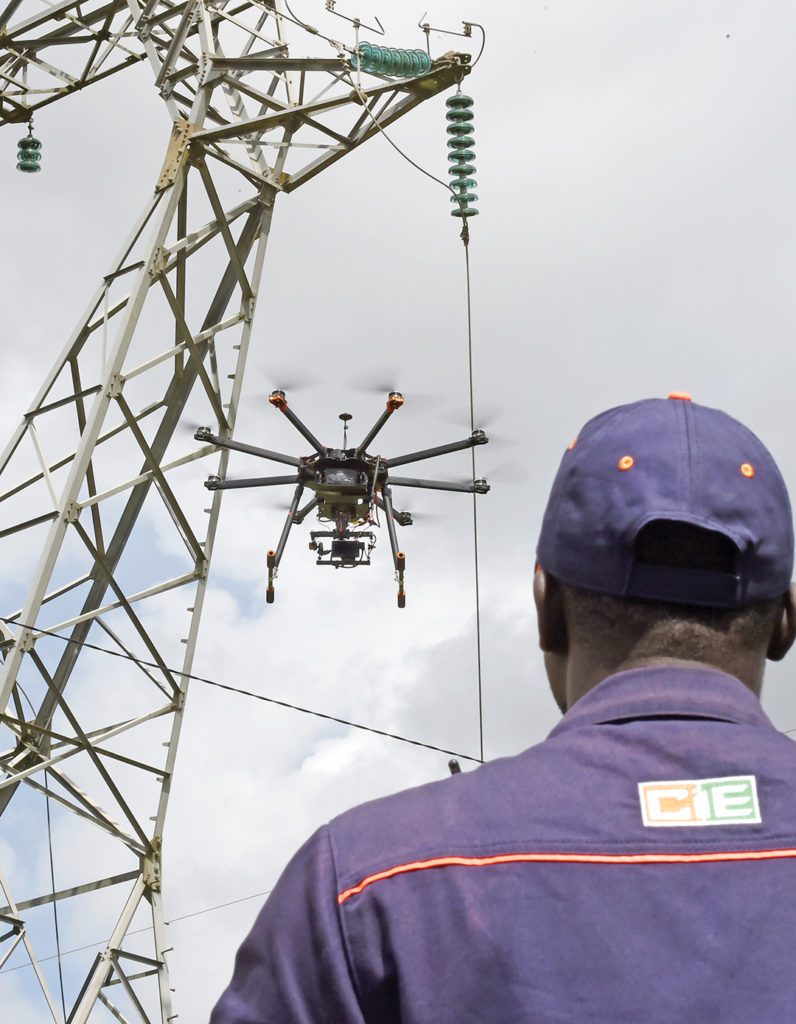AGENCE FRANCE-PRESSE
A pioneering “drone academy” in Abidjan, Côte d’Ivoire, set up by the Ivoirian Electricity Co. (CIE) plans to revolutionize infrastructure inspections and reduce costs.
CIE will train about 20 young pilots to inspect its high-voltage lines, which stretch more than 25,000 kilometers across the country.
“We have a lot of problems with vegetation; we need to clear it all the time, and it’s difficult because it’s all across the whole country,” said pilot Benjamin Mathon, who is in charge of CIE’s drone and youth training program.
Dirt tracks that are impassable after heavy rain, widespread areas of tropical vegetation and a patchy road network make access to electricity pylons difficult in a country that covers 322,000 square kilometers.
After overflying an area with a drone equipped with cameras and thermal and laser sensors, “we use artificial intelligence programs, which analyze the images for any defects — a rusty bolt on a pylon, a damaged cable,” Mathon said. “The drone allows us to analyze a large number of lines in a short space of time, across great distances.”
Students learn how to fly drones, how to assemble and repair them, and are trained to analyze images, data, geolocalization and mapping.
Previously, all inspections were done by helicopter or by teams on the ground. A helicopter costs more than $600,000, with each one-hour flight costing nearly $1,500. A drone costs between $2,000 and $125,000 to buy, its upkeep is simple and flight costs are negligible.
The company hopes to reduce the average length of power outages for its 1.3 million customers in Côte d’Ivoire. It also hopes to do the same for customers in Benin, Burkina Faso, Ghana, Mali and Togo.
The drone academy is open to any business in West Africa that could benefit from the technology, said Paul Ginies, director of the Centre for Electrical Professions, CIE’s training division.
“I’m sure that young Africans are going to grab hold of this and surprise us by developing applications which we have not thought of. It’s their generation,” he said.

